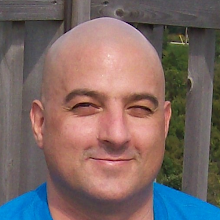I have completed some courses on Data Science on the Coursera learning platform. Here I describe my capstone project for the Applied Data Science curriculum.
I used Google and FourSquare APIs to gather data on jazz clubs in the Los Angeles neighborhoods to try and determine where a retiree who is a jazz lover may want to move to.
Based on my research, I think the best places would be either West Hollywood or Downtown Los Angeles or in the vicinity of those. I would love for you, the reader, to view my research and comment on how I did.
The code and data are in this notebook:
https://github.com/sidtbird/Coursera_Capstone/blob/master/AppliedDSCapstone_Final_Code.ipynb
The report discussing what I did is in this notebook:
https://github.com/sidtbird/Coursera_Capstone/blob/master/AppliedDSCapstone_Final_Report.ipynb
Happy reading!
Mobile Strategy – Community Meeting
11 years ago



